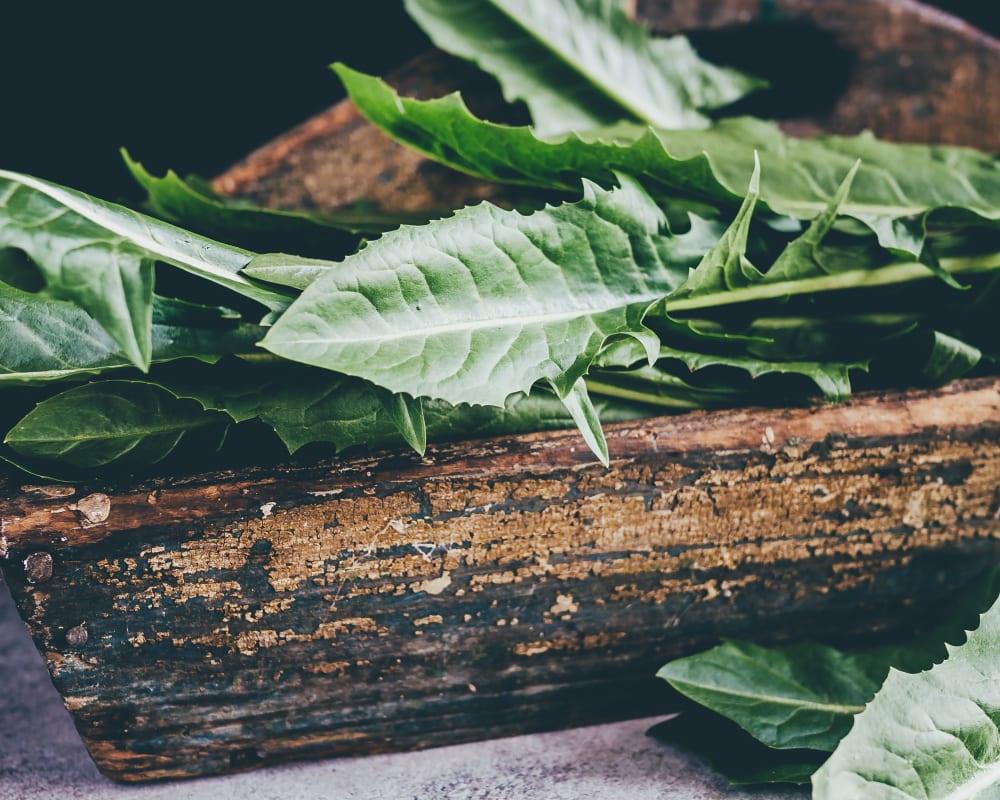Popular Conditions & Diets

You might see them fetching a king's ransom at a farmer's market or growing like a weed in your backyard: they're dandelion greens. And if they leave a bitter taste in your mouth, you're not the only one!
We often enjoy sweet, salty, and sour flavors if you think about it. But notes of bitterness are much rarer in the world's culinary traditions, and their connotation might conjure more medicine than food. Yet, it is precisely the prominent bitterness of dandelion greens that announces their benefit to the body. Arguably there is no better example of food as medicine!

Yet, it is precisely the prominent bitterness of dandelion greens that announces their benefit to the body. Arguably there is no better example of food as medicine!
That same bitter taste, not so much experienced in the mouth as it is in the back of the throat as you swallow, triggers a very sophisticated ballet of physiology, the great digestive cascade: the bitter flavour sends toll-like signals throughout the stomach, liver, gallbladder, and pancreas to get them revved up with a bouquet of digestive secretions, but especially bile.
Maliakal, P. P., & Wanwimolruk, S. (2001). Effect of herbal teas on hepatic drug metabolizing enzymes in rats. The Journal of pharmacy and pharmacology, 53(10), 1323–1329. https://doi.org/10.1211/0022357011777819

Bile is made by the liver and stored by the gallbladder. When we eat fatty foods, bile acts as an emulsifier to break those fats into smaller droplets. Emulsification increases surface area for subsequent enzymatic breakdown.
But bile also has a massive role in the detoxification process. It acts as a chemical escort, or chauffeur if you will, for all manner of toxins and excess hormones like estrogen that, once bound, can then be safely whisked out of the body.
On top of its bitterness triggering healthy bile flow, dandelion greens have beneficial effects on phase 2 liver clearance. Astonishingly, one rat study examining the effects of dandelion tea's ability to help expel toxins found a mind-blowing 244% increase in phase 2 liver detox enzyme activity!
You may already know that dandelion greens take their name from the French "dent-de-lion" (lion's teeth) due to their unique appearance. Recently their roasted roots have become a popular coffee substitute. This tradition is not new but harkens back to a similar trend in England in the 1800s.